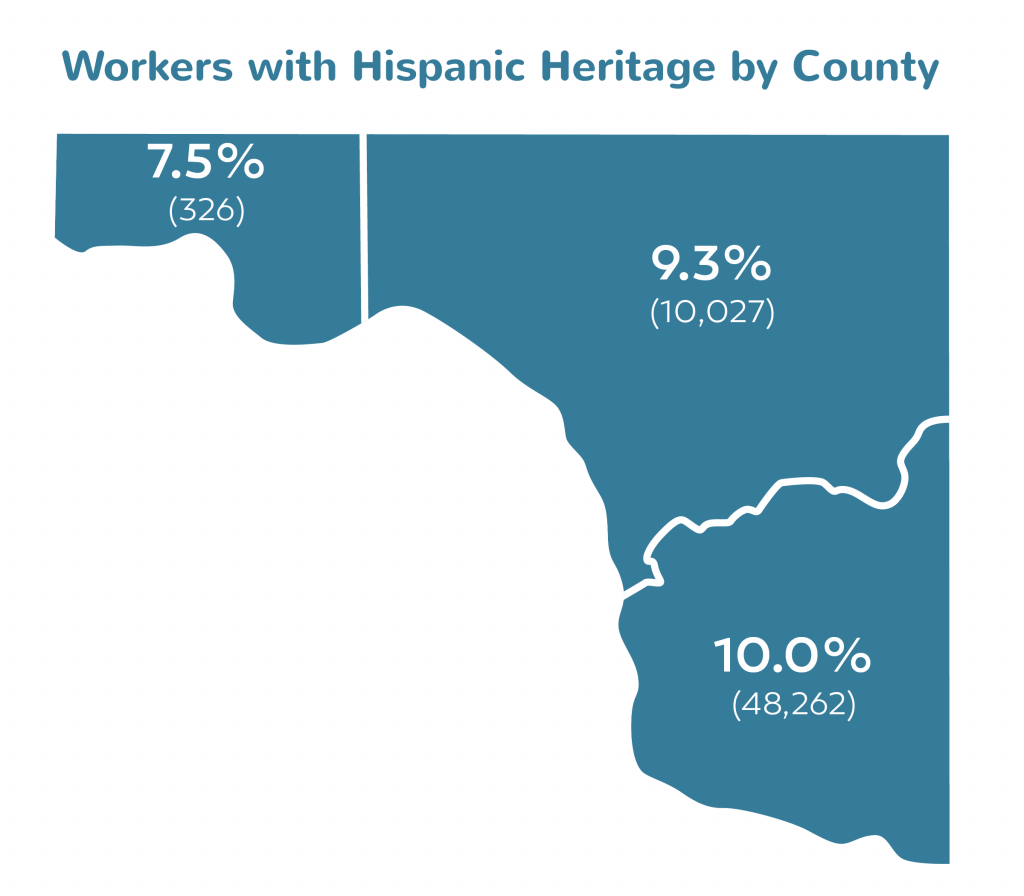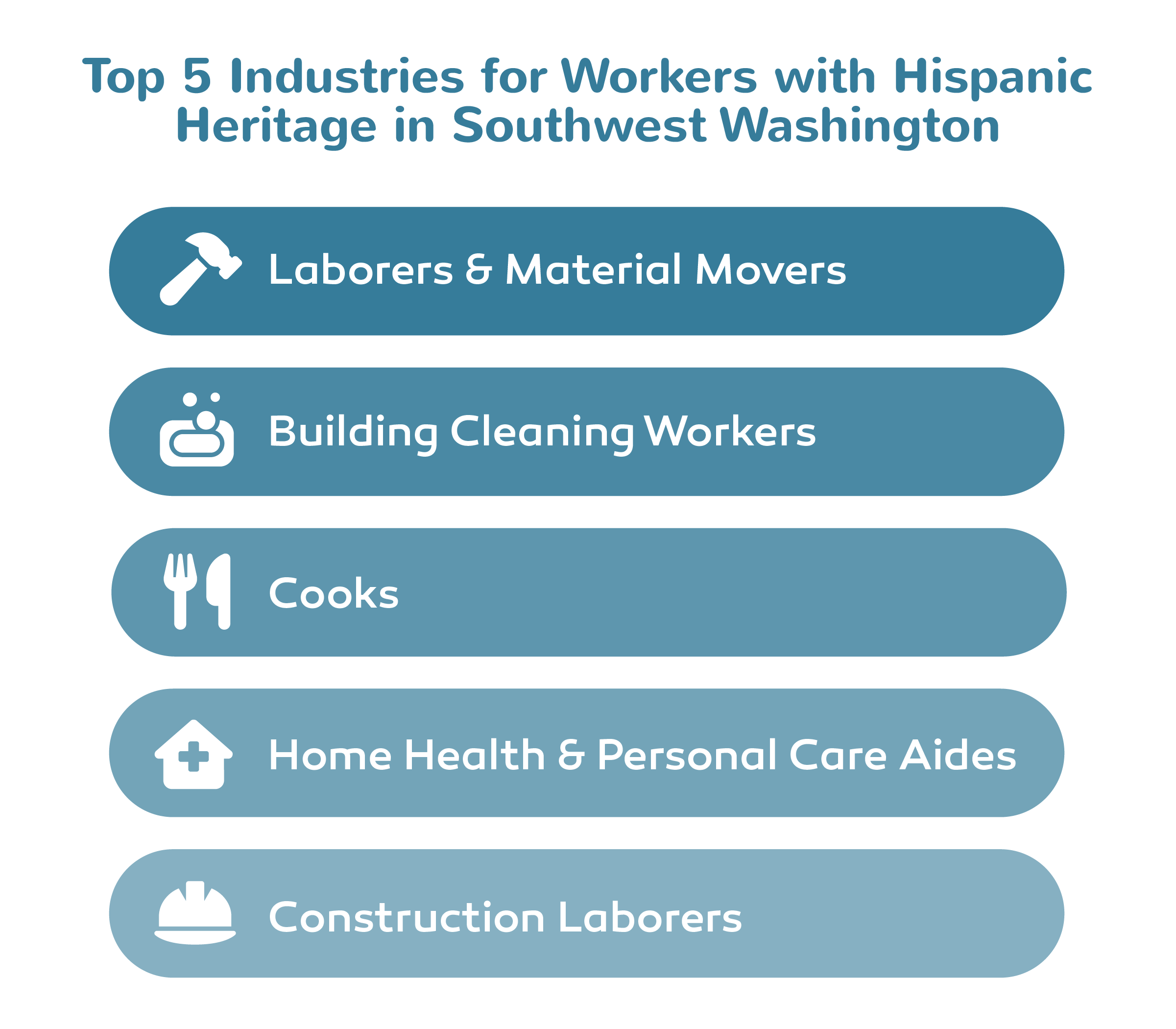The United States first recognized Hispanic Heritage week in June of 1968, after being introduced by California Congressman George E. Brown. Brown wanted to bring national attention to the contributions of people of Hispanic heritage, as the region he represented in Southern California had a large Hispanic population. In 1989, Hispanic Heritage week expanded to become a full month of celebration, from September 15 to October 15.
September 15 was chosen as the start to Hispanic Heritage Month because it corresponds with the independence days of five Central American countries: Costa Rica, El Salvador, Guatemala, Honduras and Nicaragua. In addition, Mexico and Chile celebrate their independence days on September 16 and September 18, respectively.
The United States first recognized Hispanic Heritage week in June of 1968, after being introduced by California Congressman George E. Brown. Brown wanted to bring national attention to the contributions of people of Hispanic heritage, as the region he represented in Southern California had a large Hispanic population. In 1989, Hispanic Heritage week expanded to become a full month of celebration, from September 15 to October 15.
September 15 was chosen as the start to Hispanic Heritage Month because it corresponds with the independence days of five Central American countries: Costa Rica, El Salvador, Guatemala, Honduras and Nicaragua. In addition, Mexico and Chile celebrate their independence days on September 16 and September 18, respectively.
While workers of Hispanic heritage are a cornerstone of United States’ society, making up a large portion of the workforce, Hispanic workers face disparities in the workforce. In the U.S. in 2020, Hispanic men made median annual earnings of $45,074 and Hispanic women made median annual earnings of $38,718. This compares to the national median annual earnings of white men, at $61,943 and white women at $51,326, according to a DOL report.
In the U.S., people of Hispanic heritage have a high gender earning ratio, with women making an earning ratio of 87% compared to their Hispanic male counterparts. Comparatively, white non-Hispanic women make 78.7% compared to their male counterparts. Across all racial groups, women make 82.3% of what their male counterparts make, a DOL report states. Although Hispanic women fair well compared to Hispanic men, both populations experience wage disparity compared to wages earned by non-Hispanic white men and women.
In Clark County, workers of Hispanic heritage make an average yearly income of $44,328, compared to non-Hispanic white workers, who make an average yearly income of $61,356. In Cowlitz County, workers of Hispanic heritage make an average yearly income of $44,316, compared to non-Hispanic white workers, who make an average yearly income of $56,496.
Across the United States, as of 2020, there were 29 million workers of Hispanic heritage in the labor force. This number is projected to grow to 35.9 million by 2030. The Hispanic workforce is rapidly growing compared to the total labor market. Between 1990 and 2020, the proportion of the workforce composed of workers of Hispanic heritage rose from 8.5% to 18%. By 2020, the DOL projects that people of Hispanic heritage will make up over 20% of the U.S. labor force. In Washington State, workers of Hispanic heritage comprise 13.5% (3,921,000) of the state-wide labor force.
In Southwest Washington, the labor force has a slightly lower worker base of Hispanic heritage compared to nationally and state-wide. Clark County 10% (48,262) of workers have Hispanic heritage, compared to 9.3% (10,027) in Cowlitz County and 7.5% (326) in Wahkiakum County.
According to data compiled by the University of Washington, in Washington State 7% of workers of Hispanic heritage are unemployed compared to 5% of white workers, as of the 2014-2018 census.
Across Washington, the five industries with the largest numbers of workers of Hispanic heritage are Agriculture, Forestry, Fishing & Hunting, Accommodation & Food Services, Construction, Management, Administrative & Waste Management Services, and Wholesale & Retail Trade.
 In Southwest Washington, the top industries for workers of Hispanic heritage include Laborers and Material Movers, Building Cleaning Workers, Cooks, Home Health and Personal Care Aides, and Construction Laborers.
In Southwest Washington, the top industries for workers of Hispanic heritage include Laborers and Material Movers, Building Cleaning Workers, Cooks, Home Health and Personal Care Aides, and Construction Laborers.
In Workforce Southwest Washington’s key industry sectors, workers of Hispanic heritage represent a large percent of the construction, healthcare and manufacturing industries, compared to their representation in the overall worker base. Workers of Hispanic heritage make up 18.6% of the construction industry, 13.6% of the healthcare industry and 10.8% of the manufacturing industry. In WSW’s fourth sector, technology, workers of Hispanic heritage are only 3.1% of the labor force.
Resources for Businesses
The Hispanic Metropolitan Chamber supports the Latine community in Oregon and SW Washington, providing programs to support businesses and individuals including:
- Small Business Development – services to assist businesses, free of charge, available in both Spanish and English.
- Latino Leadership Program – cultivates Latine career and leadership advancement to influence inclusive, sustainable community and economic development.
Fourth Plain Forward connects residents and local businesses with resources, promotes International District events and activities, and advocates for safety and transportation improvements.
- Small Business Technical Assistance – in partnership with the Hispanic Metropolitan Chamber, offers free small business technical assistance for Fourth Plain business owners, free of charge
Mercy Corps Northwest works to build just, productive and resilient communities across the Pacific Northwest. Its mission is to invest in communities, uncover breakthrough solutions and fight for equitable opportunities.
- Small business services – provides vital financing, mentorship and education to small business owners across the Pacific Northwest.
Workforce Southwest Washington strives to ensure each person in our community has access to critically needed workforce development programs, services and opportunities.
- Business Solutions – brings together businesses, training and education providers, government agencies and economic development partners to address the workforce needs of local companies and industries. Services include employee recruitment & retention, business growth, internship programs and employee training.
At Workforce Southwest Washington, we strive to create a community where every business and individual has access critically needed workforce development programs, services and opportunities. We are committed investing in transformative change to provide equitable access and opportunity for historically underrepresented and excluded populations.
Investing in systems change, Workforce Southwest Washington can support your business with employee recruitment & retention, business growth, internship programs and employee training. Interested businesses can contact Darcy Hoffman, Director of Business Services, at dhoffman@workforcesw.org or 360.608.4949, or submit a request and we’ll contact you.
For job seekers looking to upskill or gain access to employment, wrap-around services and workshops, reach out to WorkSource. WorkSource serves Clark, Cowlitz and Wahkiakum counties. Translation services are available at all WorkSource centers.
Contact WorkSource Cowlitz/Wahkiakum at 360.577.2250 or visit 305 S Pacific Avenue, Suite 101, Kelso, WA 98626.
Contact WorkSource Vancouver at 360.735.5000 or visit 204 SE Stonemill Drive, Suite 215, Vancouver, WA 98684.
Interested job seekers can also email WorkSource and they will get in touch with you!
Upcoming community events supporting Hispanic and Latine community members:
Multicultural Resource Fair 2022
Saturday, September 17, 2022, 11 a.m. – 3 p.m.
Clark College – Gaiser Hall, 1933 Fort Vancouver Way, Vancouver, WA 98663
This year’s event theme is Reuniting, Reconnecting, Revitalizing. The Latine Community Resource Group (LCRG) has partnered with Fourth Plain Forward to bring this event to our community. The FREE event will feature music, dancing, food, raffles and a children’s entertainment zone including face painting, balloon artist, kid’s games and prizes.
Bridging the Gap Direct Connect Event
Saturday, September 17, 2022, 10 a.m. – 2 p.m.
Bridgeview Resource Center – 505 Omaha Way, Vancouver, WA 98661
Community organizations provide resources directly to those in need, including employment services, mental health resources, vaccination clinic, education resources, back-to-school services, nutrition education, housing resources, and introduction to local community organizations and resources



